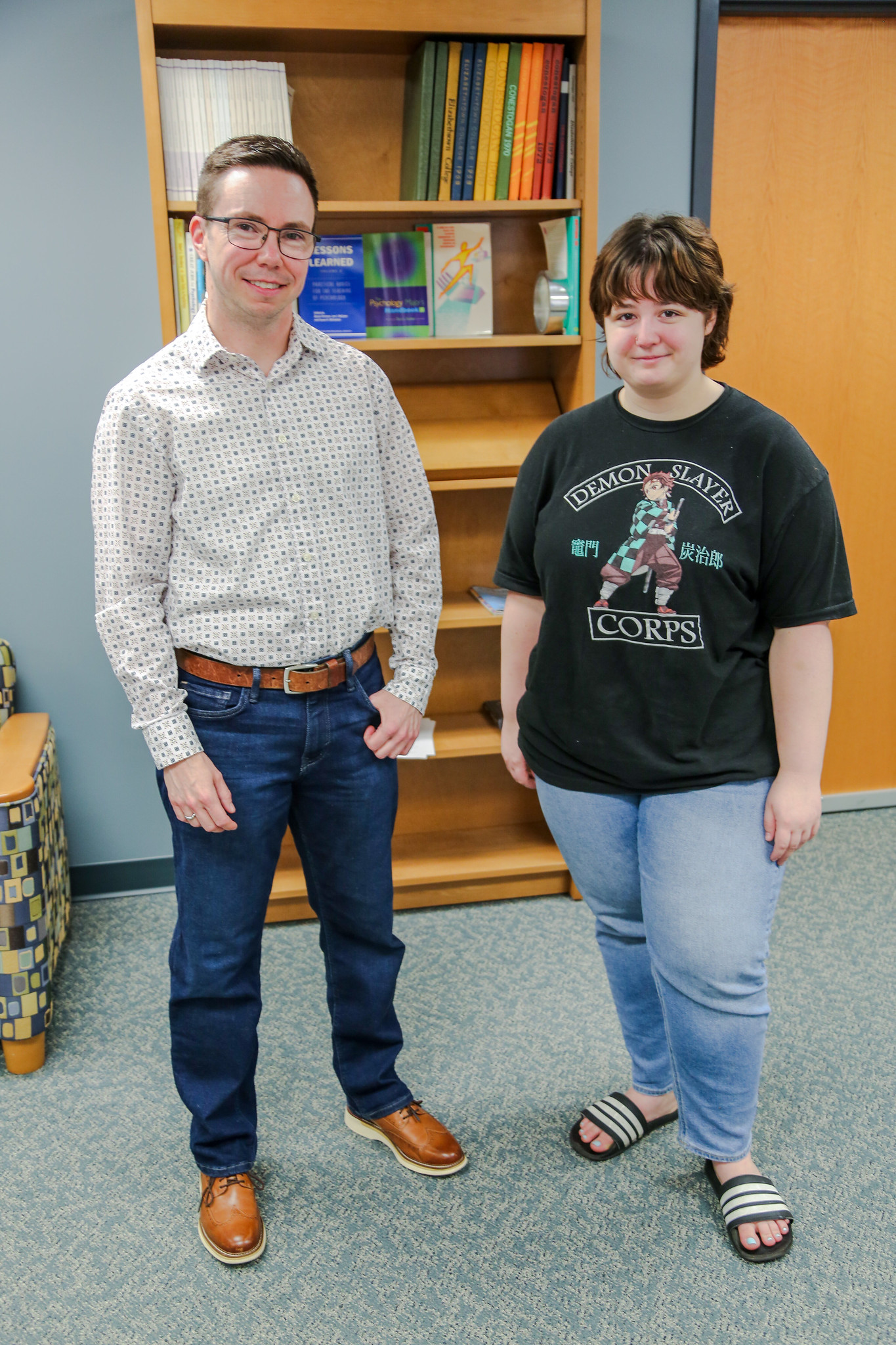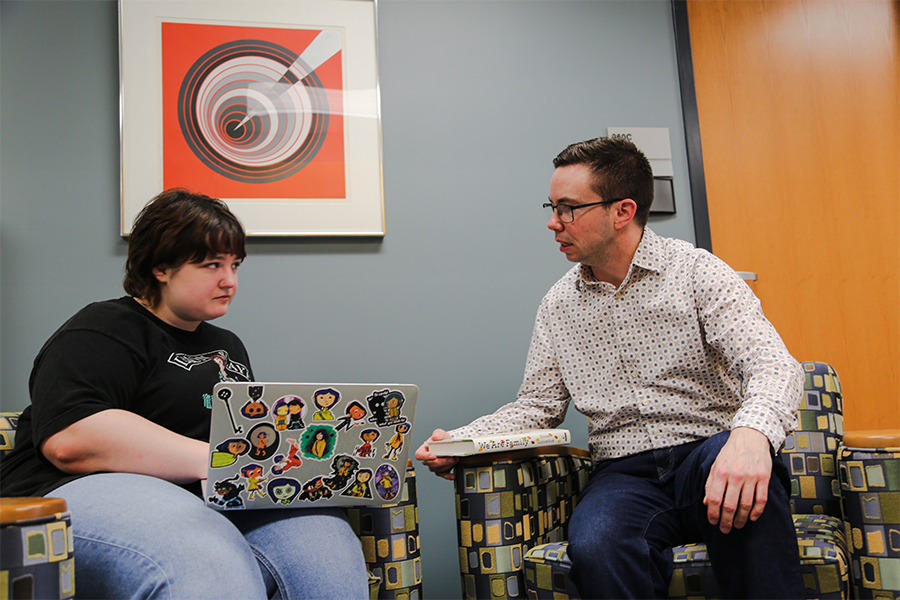Although the use of assisted reproductive technologies (ART) to conceive children using donor sperm or eggs has been available for decades, minimal research has examined how this sizable population of donor-conceived people experience their families and construct their own identities.
Elizabethtown College Psychology major Kyla Carpenter ’25 is collaborating with Associate Professor of Psychology Dr. T. Evan Smith this summer to conduct research in an effort to understand the family relationships of donor-conceived people and how their sense of self impacts their overall well-being.
Their work on campus is part of the Elizabethtown College Summer Creative Arts and Research Program (SCARP).
Title of Research
Donor-Conceived People: Identity and Family Relationships
Student Researcher
Kyla Carpenter ’25 (Psychology major)
Faculty Mentor
Dr. T. Evan Smith, Associate Professor of Psychology
What are you researching?
Dr. Smith and I are working to find out if when or how a donor-conceived person is told about their donor family their sense of self or desire for a relationship with the donor family is impacted.
Why did you choose this topic?
My parents are lesbians, so they had me and my brother through the help of our donor at the California Cryobank. I have always been interested in studying this population. When I was in Dr. Smith’s Psychology of Women and Gender class and found out that he had a connection to the donor conceived community as well, we discussed the potential of conducting research together for SCARP.
What is the most interesting aspect of this research?
I’ve had an amazing time looking through the results and reaching out to my community to gain insight into the variety of experiences that people have with reproductive donation. I’m in touch with my own donor siblings, but being in contact with the larger community has given me a sense of belonging.
How has your faculty mentor helped you?
Dr. Smith has been great from the beginning, as he was the one to confirm this could be conducted and become a reality. He has guided me through the steps of conducting research and has helped me gain a more hands-on understanding of psychological research. Whenever I felt stuck on what to do next, he always had more ideas and directions to go in.
Hear from the faculty mentor – Evan Smith
“It is a joy to work with students on projects that they are passionate about,” Smith said. “SCARP gives me the opportunity to support student curiosity and to see them realize how exciting and fun research can be.”

